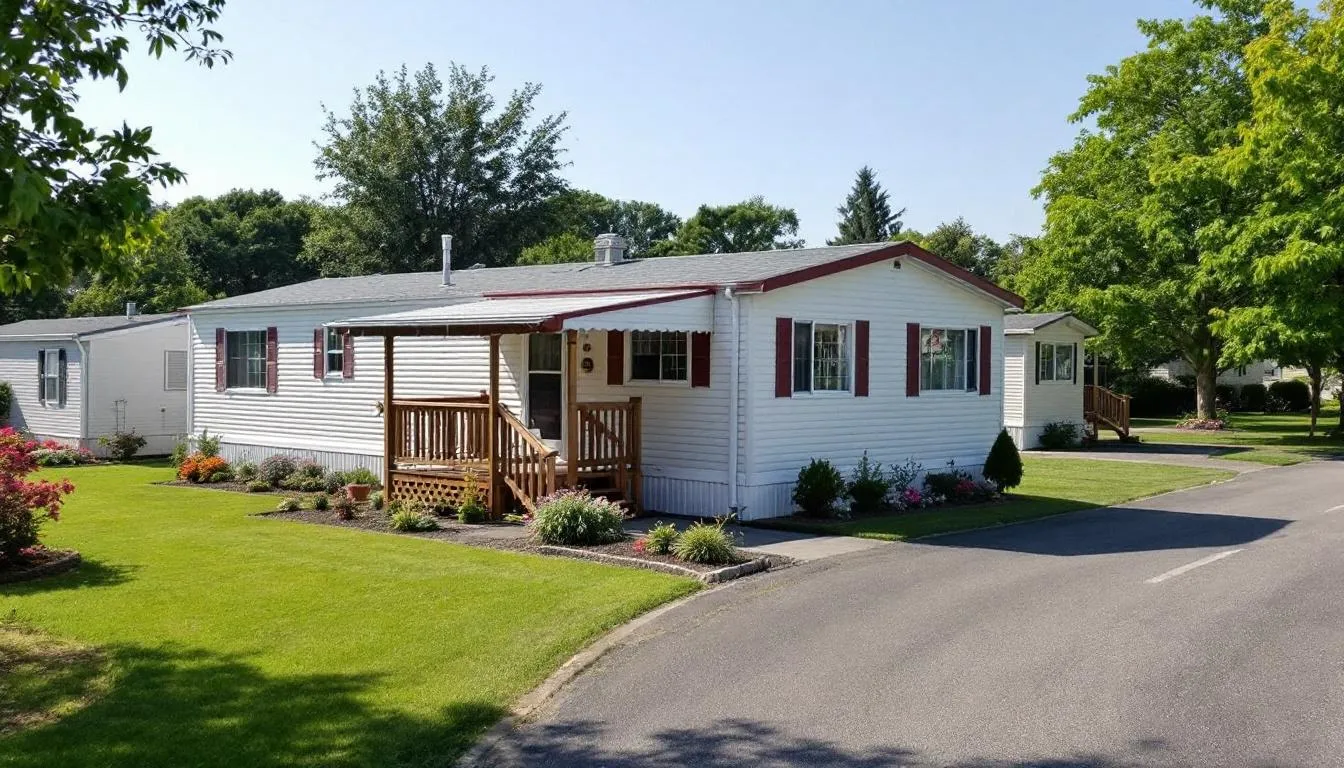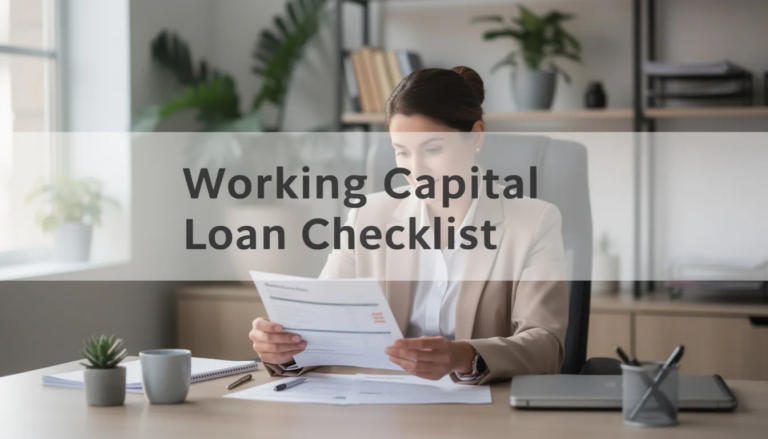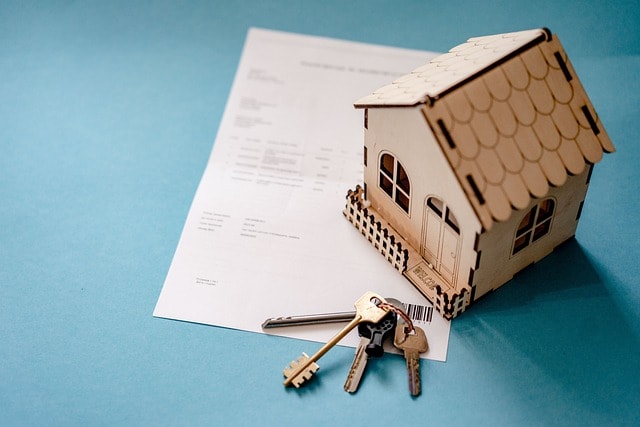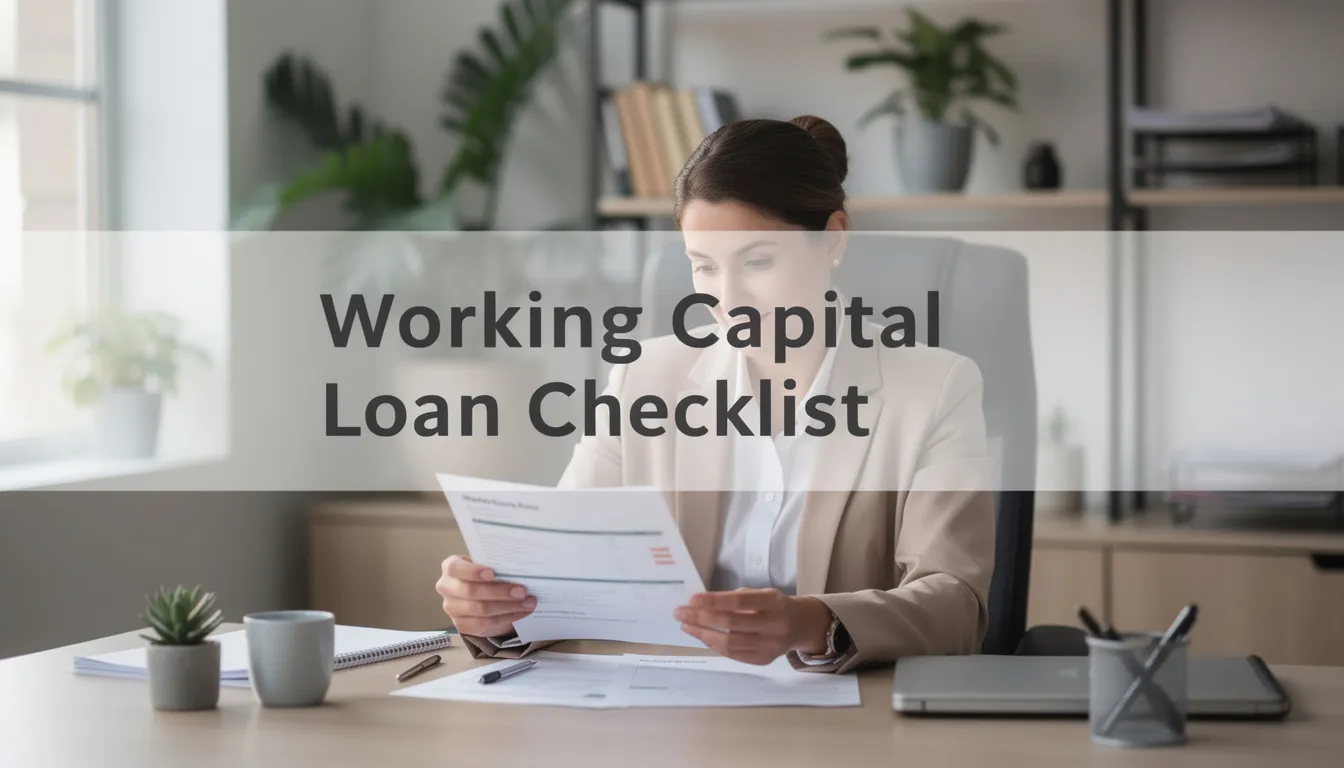What is a Mobile Home Park?
A mobile home park is a community where residents live in prefabricated homes designed to be movable. Mobile home parks (MHPs) are also known as manufactured housing communities (MHCs) or sometimes referred to as trailer parks.
Mobile homes, also known as modular or manufactured homes, offer an affordable alternative for many individuals. The homes are fully assembled in a factory and then shipped whole to a park, hence the term mobile.
Mobile and manufactured homes, also known as trailers, typically come in single or double-wide configurations. In most cases, the resident owns the trailer but pays rent for the space it occupies in the mobile home park. The homes are typically placed on rented land within the park, and residents pay a monthly fee for the lot.
Mobile home parks can vary in size, accommodating a few homes to hundreds of units. They often offer amenities like playgrounds, community centers, and laundry facilities. Residents benefit from a sense of community and shared spaces.
Investing in a mobile home park can provide a steady income stream for companies or individuals. However, investors should consider challenges like maintenance costs and fluctuating occupancy rates before entering this market.
How does Mobile Home Park Financing work?
Financing a mobile or manufactured home community involves obtaining loans to purchase or improve the property. Lenders consider factors such as the park’s location, condition, and revenue potential. Government agencies may also provide assistance or financing options for these communities.
Lenders may offer various financing options, including traditional real estate loans, government-backed loans, or specialized loans for mobile home parks. The loan terms and requirements can vary depending on factors such as the borrower’s creditworthiness, the loan program, the park’s location and condition, and the overall financial stability of the investment.
Mobile home park financing may also involve considerations such as infrastructure improvements, property management, and potential rental income. Borrowers must carefully evaluate their financing options and choose a loan that aligns with their investment goals and financial capabilities.
Finding a mobile home part in the right location and in good condition can help you secure low rates. Ensure you account for other costs, such as insurance, when determining loan size.
Mobile Home Park Financing Considerations
When pursuing an MPH, financing considerations must be taken into account. Preparing this information ahead of time can help you identify the best lender and loan option for your investment.
Down Payment: The down payment for MPH financing typically ranges from 15% to 30% of the total loan amount. Most lenders require a higher down payment for borrowers with less credit history or lower financial stability.
Creditworthiness: When pursuing financing for a mobile home park, lenders will typically consider both your business credit score and personal credit score. A strong business credit score can help demonstrate your company’s financial stability, while a good personal credit score can show your own creditworthiness as a borrower. Maintaining and improving both scores is essential to increasing your chances of securing favorable financing terms for your mobile home park. Review your credit reports before applying.
Information About the MPH: Before applying for financing for a mobile home park (MHP), it is essential to gather detailed information about the property. This includes details such as the location of the MHP, types of units available, the park’s size, current occupancy rates, amenities offered, and potential for future development. A comprehensive understanding of the MHP will help secure the right financing option for your specific needs.
What are the best options for Mobile Home Park Financing?
When considering mobile home park financing, investors have several loan options, including various government programs. Real estate buyers typically have a broader range of creative financing options for mobile home parks than for any other type of real estate investment. It may be easier to find loans from nontraditional sources.
When purchasing larger mobile home parks, loans from regional banks and more complex financing options may be required. Creative financing techniques can include master lease agreements, bridge loans, and seller carry first mortgages, particularly for properties that need repairs or are experiencing vacancy issues. Some financing options have a prepayment penalty if you pay off the loan early. It’s crucial to understand the types of lenders that can provide financing.
Traditional Bank Financing
Traditional bank loans for mobile home parks offer competitive interest rates and terms, making them an attractive option for park owners seeking financing. However, qualifying for traditional loans typically requires a strong credit history, collateral, a solid business plan, and a down payment of 20-30%.
While the application process for conventional financing can be lengthy and document-heavy, bank loans provide reliable funding with fixed interest rates for purchasing or refinancing mobile home parks. These loans typically carry monthly payments.
Federal Loans
Federal mobile home park financing loans can be obtained through government-sponsored entities, such as the U.S. Department of Housing and Urban Development (HUD), as well as Freddie Mac and Fannie Mae. These organizations provide financial support for purchasing or refinancing mobile home parks, offering competitive interest rates and terms. Working with these entities can help streamline the financing process and ensure access to affordable capital for mobile home park owners and developers.
However, government-backed financing options typically come with stringent stipulations, such as:
- Prior experience operating a mobile park (not an option for first-time buyers).
- A minimum occupancy rate of 85% at the park.
- Typically requires that at least 50% of the park’s lots can accommodate double-wide trailers.
- The borrower typically must have significant liquid assets or cash.
Commercial Mortgage-Backed Securities (CMBS)
Commercial mortgage-backed securities (CMBS) are loans packaged from various mortgages, applicable to financing mobile home parks with larger amounts over one million dollars.. In the case of mobile home park financing, CMBS can be used as a way to raise capital for purchasing or refinancing mobile home parks.
Here’s how it works: a lender provides a loan to finance the acquisition or refinancing of a mobile home park. The lender then packages this loan with similar loans and sells them to a trust, which issues bonds backed by these loans. Investors can then purchase these bonds, which provide regular interest payments based on the cash flow from the underlying mobile home park properties.
Master Lease with Option
A master lease with option is a financing arrangement commonly used in mobile home park investments. In this structure, an investor leases the entire mobile home park from the owner under a long-term master lease agreement. The investor then has the option to purchase the park at a predetermined price within a specified timeframe.
This arrangement allows the investor to control the property, generate income from renting out the individual lots or units, and potentially benefit from any appreciation in the park’s value over time. The master lease with option provides flexibility for the investor while offering the owner a steady stream of income and a potential exit strategy.
Wrap-around Mortgage
A wrap-around mortgage can help finance a mobile home park. This type of mortgage allows the buyer to assume the seller’s existing mortgage while obtaining additional financing.
This can be particularly beneficial in the case of a mobile home park, as it enables a smooth transition of ownership without the need to secure a new loan. The buyer makes payments to the seller, who then uses those funds to continue paying off the original traditional mortgage. This can be a creative way to structure a mobile home park financing real estate deal, providing flexibility for both parties.
Hard Money Loans
Hard money loans offer flexibility and quick approval for mobile home park financing. Lenders focus on property value, not credit history, benefiting owners with valuable assets but imperfect credit. While interest rates may be higher, these loans provide fast funding for investment opportunities or urgent financial needs. Hard money lenders cater to the unique financing needs of mobile home park owners, making them a viable option for these property owners.
Seller Financing
Seller financing allows the property owner to act as the lender, which can benefit buyers with poor credit or little down payment. In this arrangement, the seller acts as the lender, allowing the buyer to make payments directly to them, rather than to a traditional financial institution. This can benefit buyers who may not qualify for a conventional loan or prefer to negotiate terms directly with the seller.
Seller financing can also offer more lenient terms and faster approvals, making it an attractive option for those looking to invest in mobile home parks. This type of financing can help facilitate transactions that may otherwise be challenging to fund through traditional means. Many of the original buyers of mobile home parks are approaching retirement age, making seller financing one of the leading options in this sector.
Business Financing
Business financing options, such as business lines of credit or business credit cards, are valuable tools for entrepreneurs seeking to support their operations. While these options may not typically be used to finance mobile home parks directly, they can be instrumental in funding other aspects of running a mobile home park business.
For example, a business line of credit could be used to purchase new park equipment or cover unexpected expenses. Similarly, a business credit card can help with day-to-day operating costs and provide flexibility in managing cash flow.
All Cash Offer
Purchasing the MPH outright with cash is the simplest option and can typically yield a lower purchase price. However, few real estate buyers have the liquid funds to purchase directly.
What are the benefits of Mobile Home Park Financing?
Mobile home park financing offers tailored loan options with favorable terms, making it a popular choice among investors. Mortgages for mobile home parks provide funds for purchase or refinancing, accompanied by structured repayment plans and competitive rates.
This financing allows investors to leverage capital efficiently, freeing up funds for other investments or paying park expenses. By accessing financing, investors can maximize the income potential of mobile home parks, leading to long-term profitability and wealth accumulation in real estate.
What are the drawbacks of Mobile Home Park Financing?
Mobile home park financing can present challenges for investors. Key drawbacks include limited appreciation in mobile home real estate, a higher risk due to tenant turnover and property conditions, and difficulties securing financing.
The value of mobile homes may not increase significantly over time, and managing a mobile home park can be a labor-intensive endeavor. Additionally, lenders may require higher down payments and charge higher interest rates for mobile home park financing, making it more challenging to secure loans for these properties compared to other real estate investments.
Mobile Home Park Financing Pros & Cons
Pros:
- Lower initial investment compared to traditional real estate.
- Potential for steady cash flow from rental income.
- Diverse tenant base with varying income levels.
Cons:
- Limited financing options compared to other types of real estate.
- Maintenance and upkeep costs can be high.
- Vulnerable to economic downturns impacting tenant occupancy rates.
How do I Finance a Mobile Home Park?
Follow these steps to finance a mobile home park.
Determine the Cost
The first step in financing a mobile home park is to determine the total cost of the property. This includes the purchase price and any additional expenses such as closing costs, repairs, and improvements.
Explore Financing Options
Once you know how much you need to finance, it’s time to explore your financing options. This can include traditional bank loans, private lenders, or even government-backed loans specifically for mobile home parks.
Prepare Your Financial Documents
Before applying for a loan, ensure you have all your financial documents in order. This may include tax returns, bank statements, and a detailed business plan for the mobile home park.
Apply for a Loan
Once you have chosen a financing option and gathered all the necessary documents, it’s time to apply for the loan. Be prepared to provide information about your credit history, income, and property when completing your loan application.
Negotiate Terms
When you receive loan offers, take the time to review and compare them carefully. Negotiate with lenders to secure the best possible terms, including interest rates, repayment schedules, and any associated fees.
Close the Deal
Once you have selected a loan offer and finalized the terms, it’s time to close the deal. This typically involves signing legal documents and transferring funds to complete the mobile home park purchase.
Manage Your Finances
After securing financing for your mobile home park, it’s essential to manage your finances carefully. Ensure timely loan payments, track your income and expenses, and regularly monitor the financial health of your investment to maintain its stability.
Frequently Asked Questions
Here are the most common questions about mobile home park financing.
Are Mobile Home Parks a profitable investment?
Mobile home parks offer investors a profitable opportunity. They generate consistent income from renting out spaces to mobile homeowners. These properties have lower maintenance costs, leading to higher profit margins.
The increasing demand for affordable housing options makes mobile home parks a lucrative investment choice. They ensure high occupancy rates and steady rental income, which can provide long-term financial stability and growth for savvy investors.
Risks
However, all investment opportunities carry some level of risk. Here are the risks that could limit the profit potential of investing in a mobile home park:
- High maintenance costs
- Fluctuating demand
- Potential for damage or vandalism
- Regulatory changes
- Competition from other housing options
- Economic downturn
How do Mobile Home Parks differ from other types of Property Investments?
Mobile home parks differ from other property investments in that they typically require lower upfront costs, offer higher cash flow potential due to renting out individual lots, and have less competition than traditional rental properties. Additionally, mobile home parks often have more stable tenants who are less likely to move frequently, leading to lower turnover and maintenance costs.
This type of investment also allows for economies of scale, as managing multiple units within the same park can be more efficient than managing scattered properties across different locations. Overall, mobile home parks offer unique advantages for investors seeking steady returns with less competition.
Can I get a Mobile Home Park Loan with Bad Credit?
Mobile home park financing can be challenging, particularly for those with poor credit. However, bad credit financing options are available for individuals looking to invest in manufactured housing communities.
While traditional apartment loans may require a high credit score, some lenders and loan committees are more flexible when it comes to financing mobile home parks. Researching and comparing different manufactured housing community loan programs is essential to finding the best fit for your financial situation.
Mobile Home Park Financing – Final Thoughts
Mobile home park financing presents a unique investment opportunity, offering the potential for steady cash flow and long-term appreciation. By understanding the various financing options and conducting thorough due diligence, investors can mitigate risks and maximize returns in this niche market. Whether you’re a seasoned investor or a newcomer, mobile home park financing can be a lucrative venture worth exploring.
Contact us if you have further questions about mobile home park financing or would like to apply for a small business loan. Our alternative financing experts can help you identify the most suitable funding options for your business needs.













